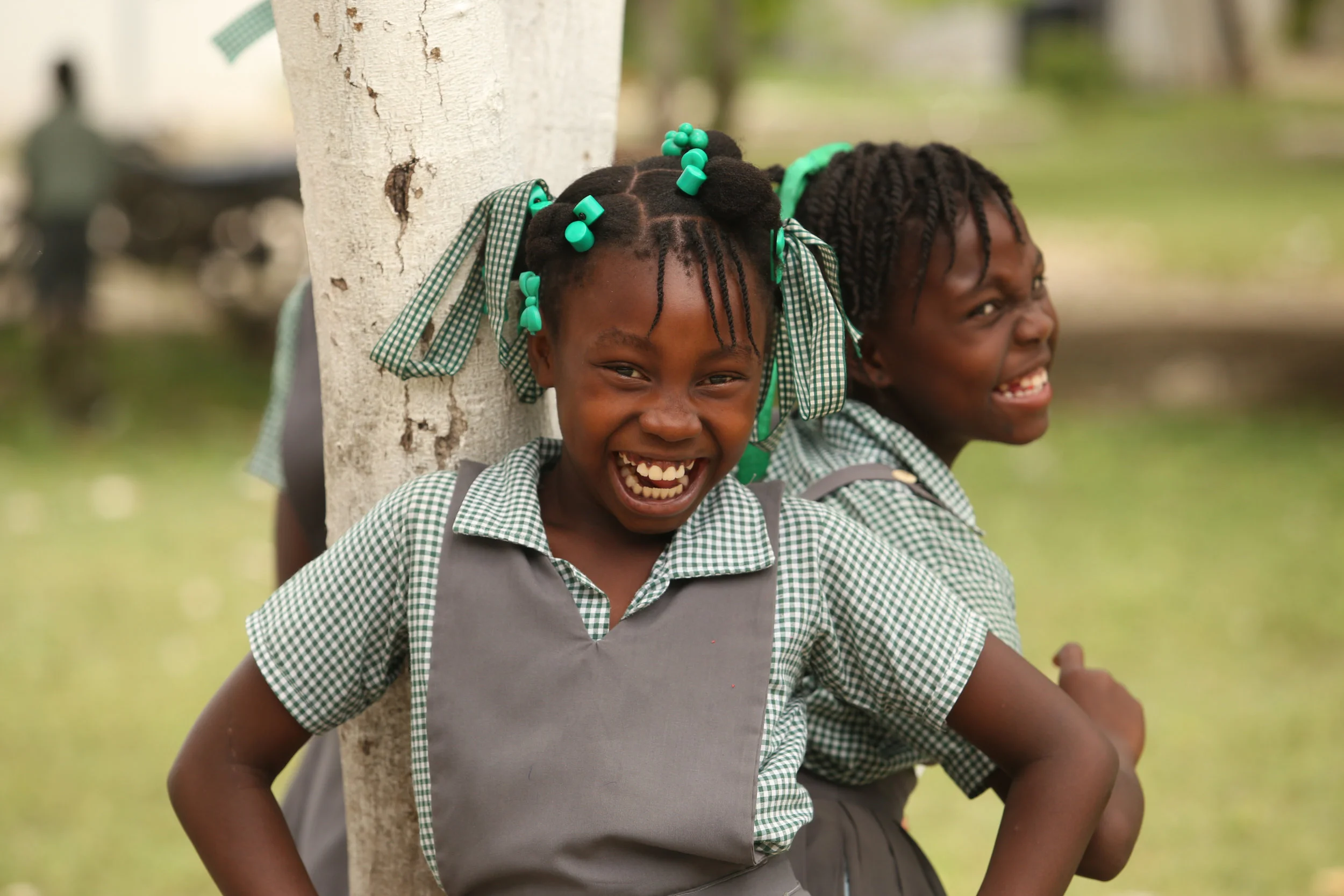EDUCATION
“Education is the foundation. It’s where we start if we want to build a new community, a new Haiti. Watching kindergarten students grow, smile, play—you are laying the foundation for the future.”
Pre-K to High School + University and Technical Scholarship Program
CHP has provided high-quality primary and early secondary education for over 5,000 students at St. Paul’s School since our founding. St. Paul’s School currently has 385 students enrolled in preschool through 10th grade. The curriculum includes core academic subjects as well as art, entrepreneurship, sports, and agriculture. Instruction occurs in Haitian Creole and French, and students also take course work in English.
In addition to following the Haitian state curriculum, St. Paul’s adds the following components:
Agricultural education
Farming has historically been a fundamental part of the economy of the Nippes region of Haiti. Raphael Fernandez Salvador, our Haitian agronomist who lives on site, teaches horticulture, botany, and environmental education in the middle school classrooms and conducts in the living lab of the garden.
Girls’ empowerment
Darline Nicolas, a teacher at St Paul's School, is the supervisor of a Girls' Empowerment program that functions both in our own school and in the state-run high school. This program, which operates in partnership with Haitian expert organization, Repanse Pouvwa, provides a safe space for important dialogues around gender dynamics and practical training sessions for girls on the importance of education, economic independence, and self-advocacy.
entrepreneurship
The majority of economic activity in the Nippes region, and in Haiti more broadly, occurs in the sprawling and dominant informal economy. Professor Vladimy, who himself attended St. Paul's and later university on a CHP-funded scholarship, teaches basic tenants of entrepreneurship, business, and economics with the students. These themes have important and practical overlap with traditional curriculum, as well as our two aforementioned supplemental programs.
Ensuring Gender Equality in the Classroom
We are proud that over half (54%) of our students are girls. Together with leaders from other sectors of Petit Trou’s community, we strive to provide girls with resources and spaces to lead healthy lives, both at school and home.
Campus Development & Infrastructure
In early 2020, we completed construction of a new, seismically safe school building that houses pre-kindergarten through 6th grade classes and offers space for community and club meetings outside of school hours. See here for more information on that project.
Higher Education Scholarships
CHP has provided higher education and technical scholarships for over 25 students in education, agriculture, nursing, accounting, business, plumbing, and solar technician work. Over 90 percent have returned to live and work in the local community.
Thanks to a grant from the IEEE, 2020 will also see the installation of a ground-mounted solar micro-grid on St. Paul’s campus. There is no public power system in the area, and, to date, the school has functioned with intermittent electricity from a diesel generator on campus. Solar power is not only clean and renewable, but will provide more consistent power for the students and community programs housed on the campus, as well as set the groundwork for a future computer lab. In conjunction with this project, CHP has funded eight solar technician scholarships for local community members who are now certified to maintain this solar grid and potentially others in the community.







